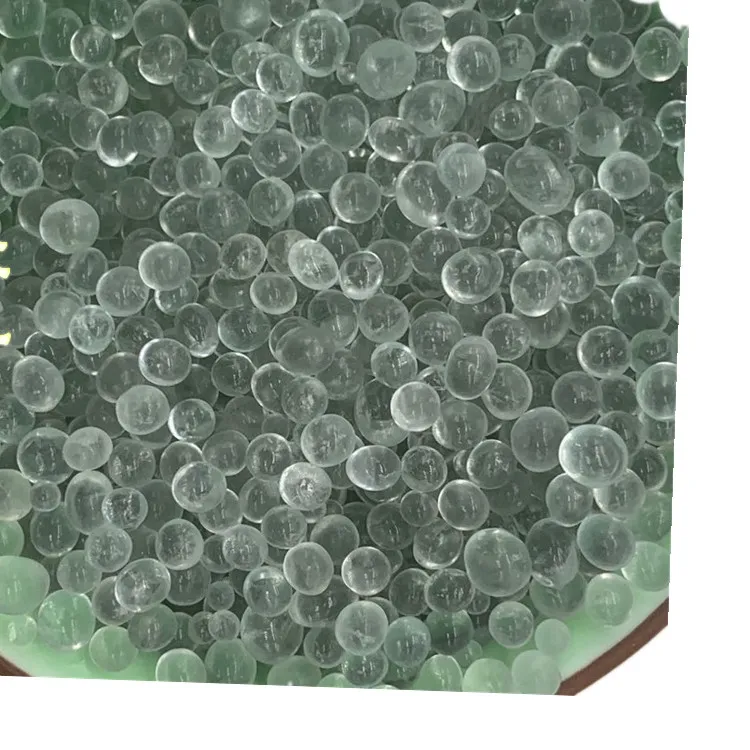
Leading Sodium Bentonite Clay Manufacturers for Diverse Industrial Applications
Understanding Sodium Bentonite Clay A Comprehensive Overview
Sodium bentonite clay is a natural clay material derived from volcanic ash, known for its unique properties and wide-ranging applications. This clay is primarily composed of montmorillonite, a layered silicate mineral that gives it remarkable ability to absorb water and expand in volume. These characteristics make sodium bentonite an indispensable resource in multiple industries, including construction, agriculture, and environmental remediation.
Composition and Characteristics
Sodium bentonite clay is rich in sodium ions, which enhance its swelling capacity when it comes into contact with water. This swelling property allows it to fill voids and create impermeable barriers, making it an effective material for sealing ponds, landfills, and other containment setups. The high plasticity of sodium bentonite also means that it can be molded into various shapes, enhancing its versatility.
Another significant characteristic of sodium bentonite is its high surface area, which allows it to adsorb various substances, including oils, toxins, and pollutants. This property makes it an appealing choice for environmental cleanup efforts, particularly in the purification of water and the stabilization of hazardous wastes.
Applications Across Industries
1. Construction and Civil Engineering In the construction industry, sodium bentonite is widely used as a waterproofing agent and sealant. It is commonly employed in the construction of dams, levees, and landfills, ensuring they remain impermeable to water and other fluids. Additionally, its ability to expand makes it a suitable material for backfilling and preventing soil erosion.
2. Environmental Remediation Sodium bentonite plays a crucial role in environmental applications. Its ability to bind with heavy metals and toxins makes it an effective barrier in landfills and waste containment systems. It is also used in remediation projects to encapsulate contaminants and prevent their migration into surrounding soil and groundwater.
3. Agriculture In agriculture, sodium bentonite acts as a natural soil conditioner. Its moisture-retaining properties make it a valuable addition to sandy soils, improving their water retention and nutrient supply. This ensures better crop yield and quality, benefiting farmers and agricultural producers.
4. Pet Care Sodium bentonite is commonly used in cat litter products due to its excellent clumping ability and odor control. Its natural properties make it a safer, eco-friendlier option compared to synthetic alternatives, appealing to environmentally conscious consumers.
sodium bentonite clay manufacturer

5. Food Industry Surprisingly, sodium bentonite is also utilized in the food industry, particularly in the clarification of beverages such as wine and juice. It helps in removing impurities and proteins, resulting in a clearer final product.
Choosing a Sodium Bentonite Clay Manufacturer
When selecting a manufacturer for sodium bentonite clay, it's essential to consider several factors
- Quality Assurance Look for manufacturers that adhere to stringent quality control measures. This ensures that the product meets industry standards and is free from contaminants.
- Customization Different applications may require varying grades of sodium bentonite. A reliable manufacturer should offer customization options to suit specific needs.
- Sustainability Practices Given the growing emphasis on sustainability, choose manufacturers that prioritize eco-friendly mining and production practices.
- Technical Support A reputable manufacturer should provide expert guidance on the optimal use of sodium bentonite clay in specific applications, helping customers achieve the best results.
Conclusion
Sodium bentonite clay is a multifaceted material that plays an essential role in various industries. Its unique properties make it invaluable for construction, environmental remediation, agriculture, and even pet care. By choosing the right manufacturer, industries can harness the full potential of sodium bentonite, ensuring sustainable and effective solutions in their respective fields. As demand continues to grow, understanding the advantages and applications of sodium bentonite clay will remain vital for industries looking to leverage this remarkable natural resource.
Share
-
Premium Resin Coated Sand - High Heat Resistance CastingNewsJul.31,2025
-
High Quality Silicon Carbide Grit for Abrasive ApplicationsNewsJul.30,2025
-
High-Quality Ceramsite for Plants & Gardening | Lightweight PebblesNewsJul.29,2025
-
Premium Burgundy Glass Marbles for Vases & Shooter GamesNewsJul.29,2025
-
High Purity Quartz Sand for Industrial and Ground ApplicationsNewsJul.29,2025
-
High-Quality Barite Powder for Drilling & Industrial UseNewsJul.29,2025






